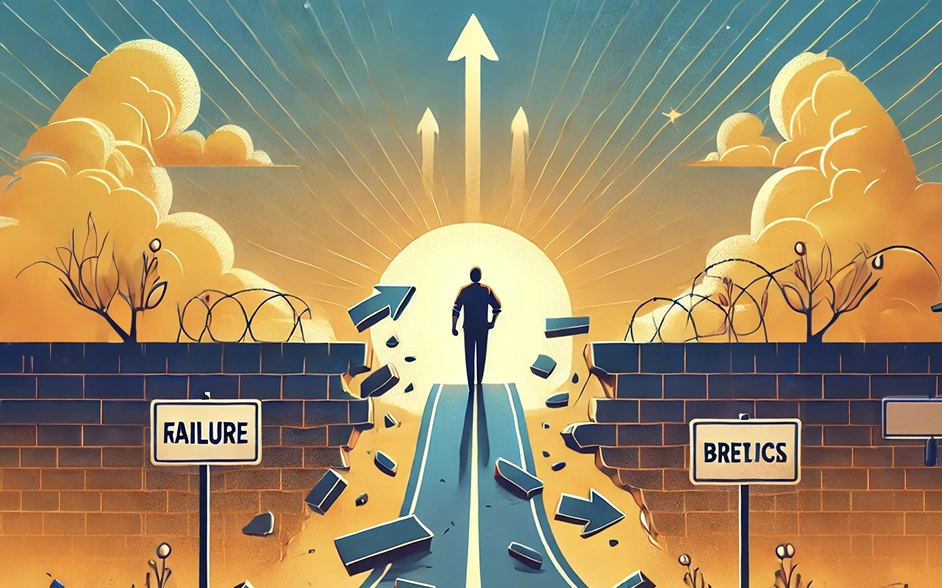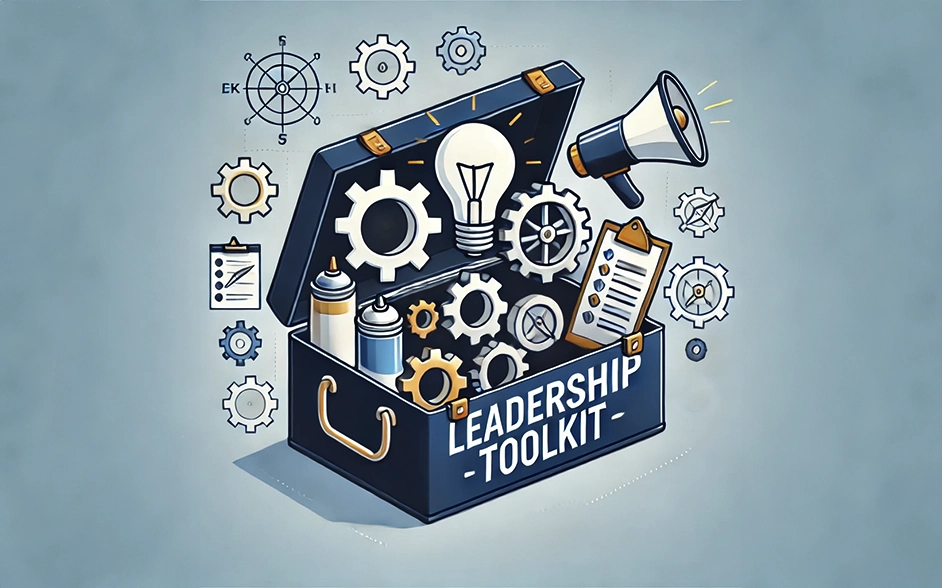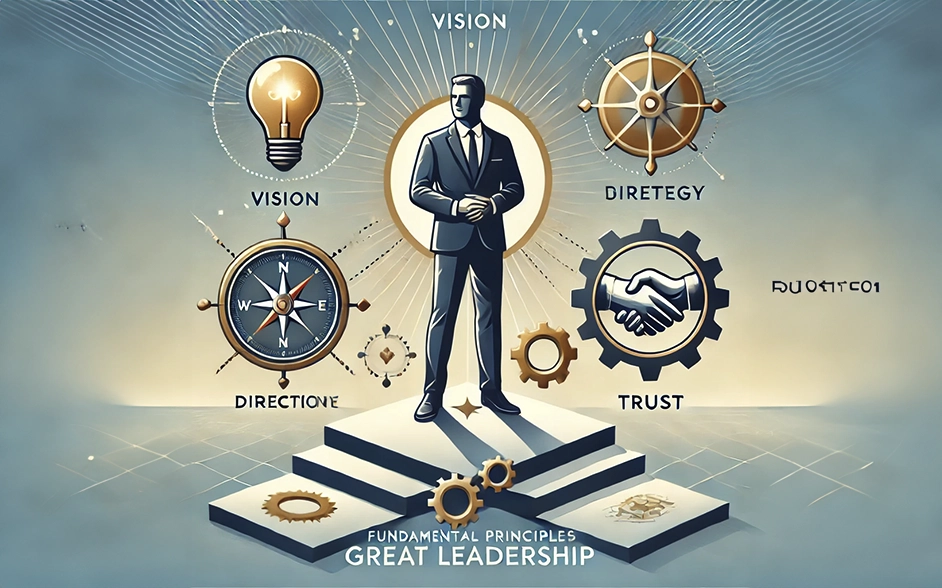1. Ideas are worthless. There, I said it.
Controversial? Maybe.
But after decades of watching “visionaries” fail while “doers” thrive, I’m convinced: You can have 100s of ideas, but no execution leads to no growth.
I’ve met countless “idea people” who pride themselves on their creativity and vision.
They have notebooks filled with concepts, their phones overflowing with notes, and their minds constantly buzzing with the next big thing.
But here’s the uncomfortable truth: ideas alone are virtually worthless.

The marketplace doesn’t reward thinking about solutions—it rewards implementing them.
The most brilliant strategy locked in your mind contributes nothing to your career, business, or personal development.
What separates successful professionals from dreamers isn’t the quality of their ideas but their bias toward action.
They understand that:
- An imperfect execution teaches more than perfect planning
- Momentum creates clarity
- Growth happens in the doing, not the thinking
This week, I challenge you to take ONE idea from your collection and commit to a single concrete step toward making it real.
Set a deadline.
Make it public.
Find an accountability partner.
What’s one idea you’re finally ready to execute on?
2. Many spend their careers fighting for a bigger slice of the same pie – competing in saturated markets, undercutting competitors, and engaging in zero-sum games.
But what if we shifted our mindset?
True innovation isn’t about dividing limited resources.
It’s about creating entirely new markets, solutions, and opportunities.

While others battle over crumbs, visionary leaders focus on baking bigger, better pies.
Think Netflix transforming entertainment, or Tesla revolutionizing automotive.
They didn’t just compete – they created new categories altogether.
Your energy is better spent identifying unmet needs, solving real problems, and expanding possibilities.
Don’t limit yourself to existing markets.
Create your own.
Remember: The size of your slice matters less than your ability to grow the whole pie.

3. Failure isn’t a roadblock – it’s a redirect. 📍
Every “no” pushes to reassess, adapt, and grow stronger.
Start documenting the lessons, seeking feedback aggressively, and approaching challenges with a scientist’s mindset – each failure was just data pointing toward success.
Remember: Your career isn’t a straight line.
It’s a series of experiments, and “failed” experiments often lead to the biggest breakthroughs.
Quick aside: What’s your biggest career setback that turned into an opportunity? Share below 👇
4. Ever notice how it’s the last stretch of preparation that makes your interviews shine?
Or how that extra hour of refining your presentation transforms it from good to unforgettable?
Success in your career isn’t just about talent or skills—it’s about pushing through when others quit.
Like a stonecutter hitting rock 100 times before the breakthrough, every résumé revision, every practice session, every networking event builds toward your defining moment.
The most successful professionals aren’t necessarily the most talented—they’re the ones who pushed through that final 1% when others said “good enough.”
Your dream role, promotion, or business venture might be just one more try away.
That final email.
That extra follow-up.
That last pitch refinement.
Remember: A growth mindset isn’t just about learning—it’s about persisting when your comfort zone begs you to stop.
5. The difference between success and stagnation often comes down to mindset.
📌 Fixed mindset: “I’m not good at public speaking, that’s just who I am.”
📌 Growth mindset: “Each presentation is a chance to improve my communication skills.”
📌 Fixed mindset keeps you in your comfort zone.
📌 Growth mindset pushes you to embrace challenges, learn from feedback, and see failures as stepping stones.
Your abilities aren’t set in stone.
They’re like muscles – the more you challenge them, the stronger they become.
What mindset you wish to have for yourself ?
6. Sometimes the hardest action to take is no action at all.
When we’re navigating career challenges, our instinct often pushes us to make immediate changes.
But I’ve learned that patience isn’t passive—it’s strategic.
Take your stand,
Know your worth,
But resist the urge to make hasty decisions.
The best opportunities often reveal themselves to those who can weather the uncertainty with grace.
Remember: Career growth isn’t always linear.
Those “in-between” moments?
They’re not delays—they’re preparation for your next chapter.
7. Ready to Level Up?
5 Clear Signs It’s Time to Move from Specialist to Leader 🚀
Remember when you could solve every technical problem thrown your way?
But lately, you’re finding more satisfaction in helping others solve those problems instead.
That’s your first sign.
The Telltale Signs:
- You’re spending more time mentoring juniors than doing hands-on work
- Strategic discussions excite you more than technical deep dives
- Team success brings you greater joy than personal wins
- You’re naturally becoming the go-to person for project planning
- Technical expertise alone feels limiting
Here’s the reality: The skills that make you an excellent specialist will differ from those that make you an effective leader.
The Transition Blueprint:
Start Before You’re Ready
- Volunteer for team coordination roles
- Lead small projects while maintaining your specialist role
- Build relationships across departments
- Seek mentorship from seasoned leaders
Develop Your Leadership Toolkit
- Focus on emotional intelligence
- Learn to delegate (yes, even the tasks you excel at)
- Practice strategic thinking
- Master difficult conversations
- Build your business acumen

Shift Your Metrics From: Individual output To: Team impact
The hardest part?
Letting go.
Understanding that your value now comes from empowering others rather than being the technical hero.
Question: What’s holding you back from making this transition?
8. Last week, a younger colleague asked me something that stopped me in my tracks: “How did you develop your leadership style?”
The honest answer?
Through countless mistakes, uncomfortable pivots, and one major mindset shift that changed everything.
Let me share what I wish someone had told me about building an authentic leadership style mid-career.
No theory – just real experiences and actionable strategies that worked for me.
🔑 Key Revelation: Your accumulated experience is both your greatest asset AND your biggest potential barrier.
Here’s my tactical playbook (with real examples):
Leverage Your Battle Scars
- OLD APPROACH: Hiding past failures
- NEW APPROACH: Using them as teaching tools
Reverse Mentoring Is Your Secret Weapon
- OLD APPROACH: Being the all-knowing leader
- NEW APPROACH: Learning from every level
Blend Traditional & Modern Leadership
- OLD APPROACH: Sticking to what worked before
- -NEW APPROACH: Hybrid leadership style
Turn Mid-Career Anxiety Into Advantage
- OLD APPROACH: Competing with younger leaders
- NEW APPROACH: Collaborating across generations
Create Your Signature Move
- OLD APPROACH: Following leadership books
- NEW APPROACH: Developing unique practices
🎯 The Game-Changing Routine That Worked For Me:
- Monday: 30-min reflection on last week’s leadership moments
- Wednesday: One uncomfortable conversation I’d normally avoid
- Friday: Documentation of what worked/didn’t in my leadership journal
⚡ The Breakthrough Moment: Last month, during a crisis meeting, I caught myself reaching for my old authoritative playbook. Instead, I paused and asked, “What if we approach this differently?”
Reality Check:
- Building your leadership style at this stage isn’t about completely reinventing yourself.
- It’s about thoughtfully integrating your experience with new approaches.
Personal Note: At this age, I’m more excited about leadership than ever.
Why? Because I finally understood that great leadership isn’t about age or title – it’s about continuous evolution and authentic connection.
🔄 Weekly Challenge for Fellow Mid-Career Leaders
- Identify one leadership habit that served you well in the past but might be limiting you now.
- Experiment with a new approach for just one week. Share what happens.
What leadership evolution are you experiencing? Let’s learn from each other’s journeys.
9. As I reflect on my 30+ year journey leading teams across continents and industries, one truth stands out: leadership isn’t about having all the answers – it’s about asking the right questions.
I remember walking into my first global leadership role in the early 90s. The internet was in its infancy, and “virtual teams” meant late-night conference calls and fax machines.
Today, I’m dealing with teams spread across time zones through AI-powered collaboration tools.
While technology has evolved, the fundamental principles of great leadership remain unchanged.

Here are the three most powerful lessons I’ve learned:
Cultural Intelligence Is Non-Negotiable
- My most successful teams weren’t just diverse on paper – they were built on a foundation of mutual understanding.
- Whether I was launching operations in emerging markets or integrating post-merger teams, success always came down to creating an environment where different perspectives weren’t just welcomed, they were essential.
Innovation Thrives in Chaos
- During periods of hypergrowth, I’ve learned to embrace uncertainty.
- The teams that consistently outperformed were those that saw challenges as opportunities.
- We turned market disruptions into breakthrough innovations, and competitors’ threats into catalysts for transformation.
Operational Excellence Is a Journey, Not a Destination
- Building high-performing teams isn’t about perfecting a system – it’s about creating an environment of continuous improvement.
- The metrics matter, but what matters more is how teams respond when those metrics aren’t met.
- Instead of falling back on old playbooks, our cross-functional team developed an innovative solution combining local manufacturing partnerships with AI-driven logistics optimization.
The result?
We didn’t just meet our targets – we created a new operational model that’s now being rolled out globally.
To my fellow business leaders:
- The size of your team matters less than the size of their ambition
- Your experience is valuable, but your adaptability is invaluable
- In today’s business landscape, the ability to unlearn is as crucial as the ability to learn
- The greatest reward in my journey hasn’t been the business metrics (though they’ve been impressive) – it’s been watching individuals grow into leaders who are now transforming their own organizations.
What leadership lessons have shaped your journey? How are you adapting your leadership style for tomorrow’s challenges?
